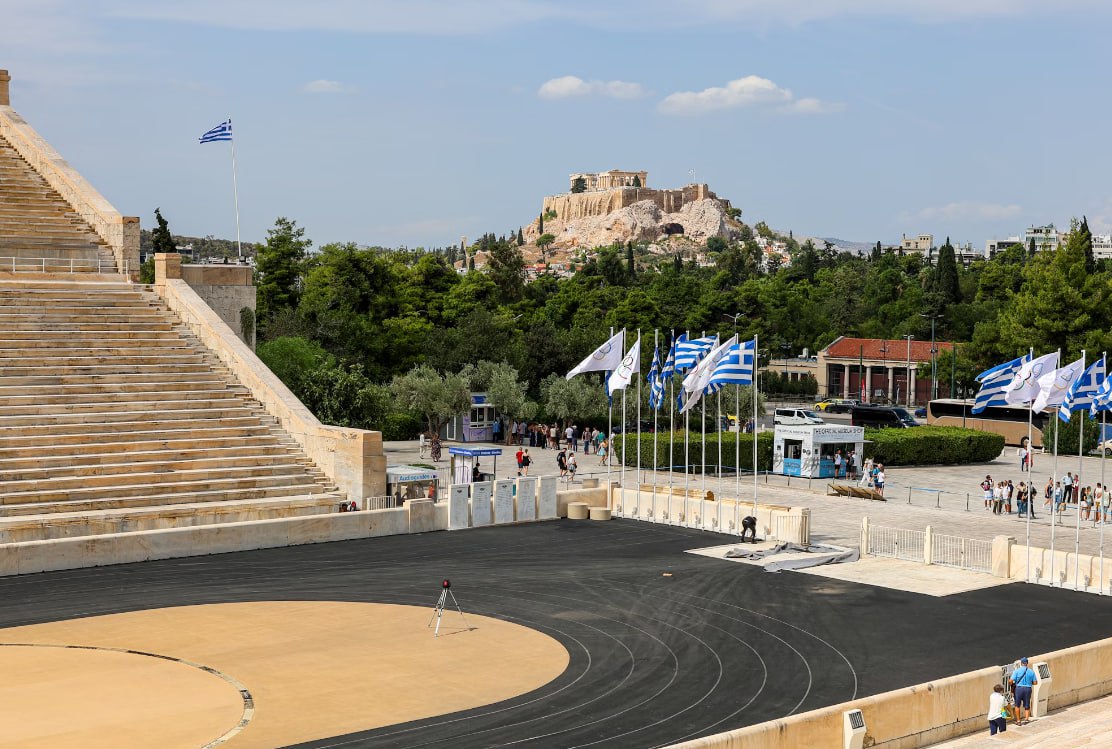Discover the Athens Marathon: A Historic Race Through Time
The Athens Marathon is a unique and historic event that attracts runners and tourists from all over the world. This race not only offers the challenge of a marathon but also allows participants to run in the footsteps of the ancient Greek hero Pheidippides. Here's everything you need to know about the Athens Marathon, from event details to travel tips.
Event Overview
Date and Place: The Athens Marathon usually takes place in early November. The race begins in the town of Marathonas, about 42 kilometers northeast of Athens, and ends at the historic Panathenaic Stadium in Athens, where the first modern Olympic Games were held in 1896.
Fees and Registration: Registration for the Athens Marathon typically opens several months before the event. Fees vary depending on the package chosen, with options for basic entry, which includes a bib number, timing chip, and participation certificate, to more comprehensive packages that offer additional benefits like a finisher's medal, official t-shirt, and access to pre-race events. Early registration is encouraged, as spots can fill up quickly.

Traveling to the Event
Athens is well-connected by air, rail, and road, making it easy for international and local participants to travel to the marathon.
By Air: The nearest airport is Athens International Airport (Eleftherios Venizelos), located about 20 kilometers east of Athens. The airport handles numerous international and domestic flights daily, making it the most convenient entry point for most visitors.
By Train: If you're traveling from other parts of Greece or neighboring countries, the Greek railway system provides efficient and scenic routes to Athens. The main train station, Athens Railway Station (Larissis Station), is well-connected to the city center.
By Car: Renting a car is a popular option for travelers who prefer flexibility. Athens airport car rental services offer a wide range of vehicles to suit your needs. Driving in Greece is straightforward, with well-maintained highways connecting major cities.
Public Transport and Getting Around
Athens boasts an efficient public transportation system that includes buses, trams, and the metro, making it easy to navigate the city.
Metro: The Athens Metro is a convenient way to travel around the city. The Athens airport metro schedule ensures regular and reliable service from the airport to the city center, with trains running every 30 minutes. The metro also connects to various parts of the city, including the starting point of the marathon in Marathonas.
Buses and Trams: Athens has an extensive bus and tram network that covers most areas of the city. Buses are a great option for reaching more remote areas or specific locations not serviced by the metro.
Taxis: Taxis are readily available throughout Athens and offer a convenient way to travel directly to your destination. It's advisable to use official taxis or pre-book services to ensure a fair fare.
Travel Information: Athens Marathon to Major Transport Stations
| Transportation Station | Distance (km) | Average Travel Time (minutes) | Taxi Fare (EUR) - Estimated | Notes |
|---|---|---|---|---|
| Marathon Train Station | 1 | 15 | 8 | Closest station to the starting point. Might be crowded after the race. |
| Nea Makri Station (Metro Line 3) | 8 | 40 | 35 | Connects to Athens Metro network. Consider traffic during peak hours. |
| Kifisia Bus Station | 42 | 90 | 70 | Major bus station with connections to various destinations. Expect higher taxi fare due to distance. |
| Athens International Airport (ATH) | 45 | 105 | 90 | Most distant option. Consider pre-booking a taxi for guaranteed availability after the race. |
Notes:
- Taxi fares are estimated based on average rates and may vary depending on traffic conditions, time of day, and demand.
- Public transportation fares are not included but are generally affordable.
- Consider purchasing a pre-paid travel card for public transportation to avoid queues during peak hours.
- Sharing a taxi with fellow runners can be a cost-effective option.
- This table provides a general overview. It's recommended to research specific routes and schedules using official public transportation websites or apps for the most up-to-date information.
Nearest Airports and Transport Options
The closest airport to the Athens Marathon is Athens International Airport. Here are some transport options from the airport to the city center and the marathon start line:
Athens Airport to City Center:
Metro: As mentioned, the Athens Metro offers direct service from the airport to the city center. Check the Athens airport metro schedule for the latest timings.
Buses: The X95 bus route provides a direct link from the airport to Syntagma Square in the city center.
Car Rental: For those preferring to drive, numerous Athens airport car rental agencies offer vehicles at the airport.
Travel Options from Athens International Airport to Athens Marathon
| Vehicle | Distance (km) | Average Travel Time (minutes) | Convenience |
|---|---|---|---|
| Bus (X95) | 20 | 60 | Moderate |
| Metro | 20 | 40 | High |
| Taxi | 20 | 30 | High |
| Car Rental | 20 | 30 | Moderate |
| Shuttle Bus | 42 | 60 | High (Race Day Only) |
Notes:
Bus (X95): The X95 bus route runs from Athens International Airport to Syntagma Square. It is a convenient and cost-effective option but may take longer due to traffic.
Metro: The metro provides a direct route from the airport to the city center with fewer stops and reliable service. It's fast and convenient, especially during peak hours.
Taxi: Taxis offer a direct and quick route to your destination. They are more expensive but provide door-to-door service, making them highly convenient for those with luggage.
Car Rental: Renting a car offers flexibility and independence. However, navigating through city traffic and finding parking can be challenging for first-time visitors.
Shuttle Bus: On race day, shuttle buses specifically for marathon participants are available from central Athens to Marathonas. This is a highly convenient option for runners.
City Center to Marathonas:
Shuttle Buses: On race day, shuttle buses are typically arranged to transport runners from the city center to Marathonas.
Public Transport: Regular buses run from Athens to Marathonas, offering an affordable and convenient option.
Taxis: Taxis are also available for a direct and comfortable journey to the starting point.
Travel Information: Athens Marathon to Major Attractions
| Attraction | Distance (km) | Average Travel Time (minutes) | Taxi Price (EUR) |
|---|---|---|---|
| Acropolis of Athens | 40 | 45 | 45 |
| Parthenon | 40 | 45 | 45 |
| National Archaeological Museum | 42 | 50 | 50 |
| Plaka | 38 | 40 | 40 |
| Temple of Olympian Zeus | 39 | 40 | 40 |
| Panathenaic Stadium | 42 | 50 | 50 |
Notes:
Acropolis of Athens: Located approximately 40 km from the marathon finish line at the Panathenaic Stadium, a taxi ride costs around 45 EUR.
Parthenon: This iconic structure is also about 40 km from the marathon finish line, with a taxi fare of approximately 45 EUR.
National Archaeological Museum: Situated around 42 km from the marathon finish line, expect a taxi ride to cost about 50 EUR.
Plaka: The historic neighborhood of Plaka is 38 km from the marathon finish line, with a taxi fare of around 40 EUR.
Temple of Olympian Zeus: Located about 39 km from the marathon finish line, a taxi ride costs approximately 40 EUR.
Panathenaic Stadium: The finish line of the marathon itself, located in the heart of Athens. The taxi fare from other parts of the city center to the stadium is generally around 50 EUR.

Tourist Tips and Rules
When participating in the Athens Marathon, there are a few important rules and tips to keep in mind:
Registration: Ensure you have registered in advance and received all necessary documentation, including your bib number and timing chip.
Hydration and Nutrition: Stay hydrated and fuel your body properly before and during the race. There are numerous water stations along the route, but it's a good idea to carry your own water bottle and energy snacks.
Respect the Course: The marathon route is steeped in history. Respect the surroundings and follow the marked course to avoid disqualification.
Safety and First Aid: Familiarize yourself with the locations of medical aid stations along the route. In case of an emergency, alert a race official immediately.
Travel Documents: Carry a copy of your registration confirmation, identification, and any necessary travel documents.
Exploring Athens and Nearby Cities
Athens is not only a marathon destination but also a city rich in history and culture. Take time to explore its ancient ruins, vibrant neighborhoods, and delicious cuisine.
Acropolis and Parthenon: No visit to Athens is complete without a tour of the Acropolis and the Parthenon, offering stunning views of the city.
Plaka and Monastiraki: Wander through the historic neighborhoods of Plaka and Monastiraki, known for their narrow streets, shops, and tavernas.
Museums: Athens is home to numerous museums, including the National Archaeological Museum and the Acropolis Museum, showcasing artifacts from ancient Greece.
Nearby Cities: If you have extra time, consider visiting nearby cities such as Nafplio, Delphi, and Corinth, all offering unique historical and cultural experiences.
Conclusion
The Athens Marathon is more than just a race; it's a journey through history and a celebration of athletic achievement. With the right preparation and information, your experience at the Athens Marathon will be memorable and rewarding. Whether you're a participant or a spectator, make the most of your time in Athens by exploring its rich heritage and vibrant culture.
For more information on navigating the city, check the Athens airport map and ensure you're up to date with the Athens airport metro schedule and Athens airport car rental options. Enjoy your time in Athens and best of luck in the marathon!